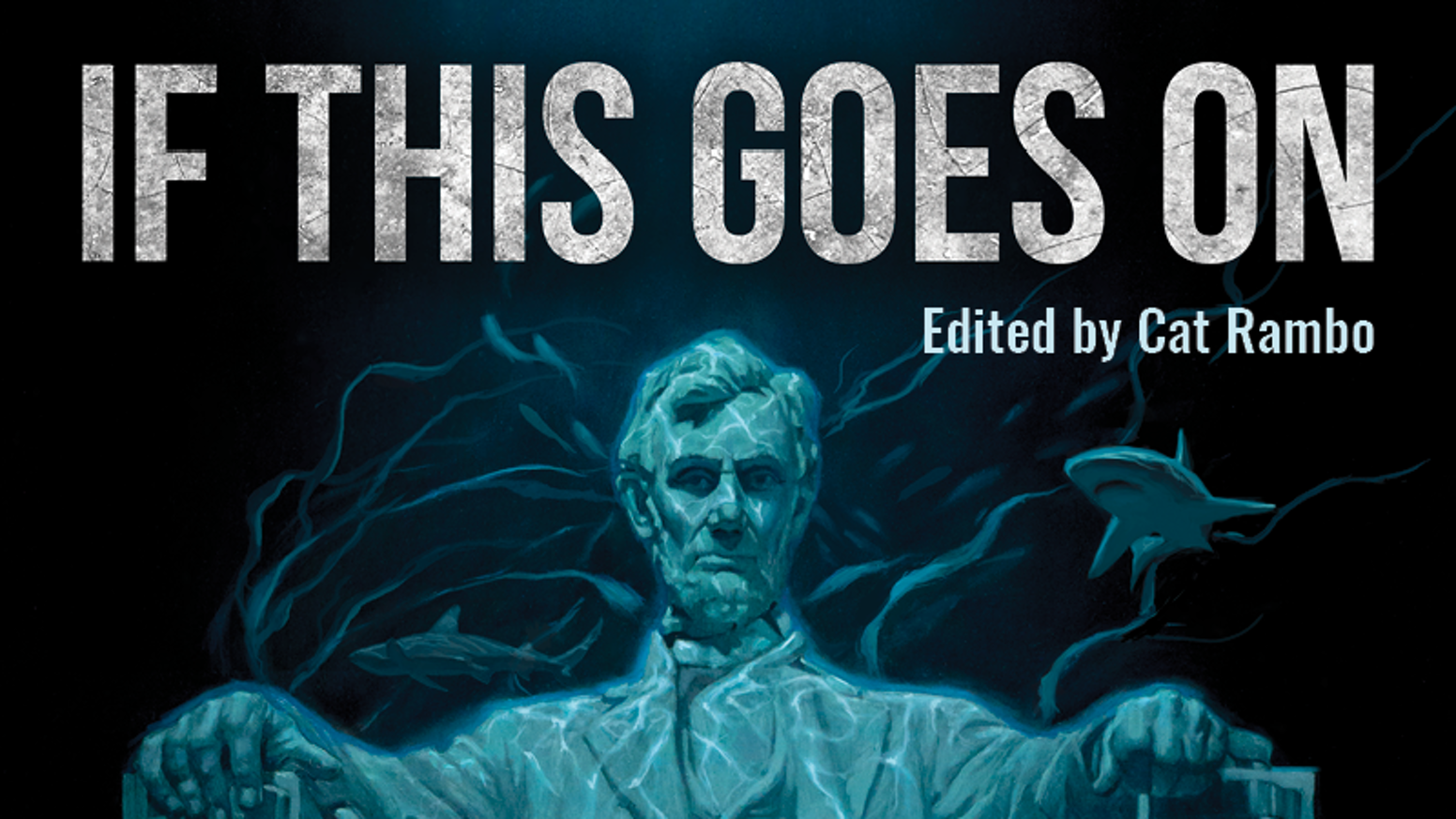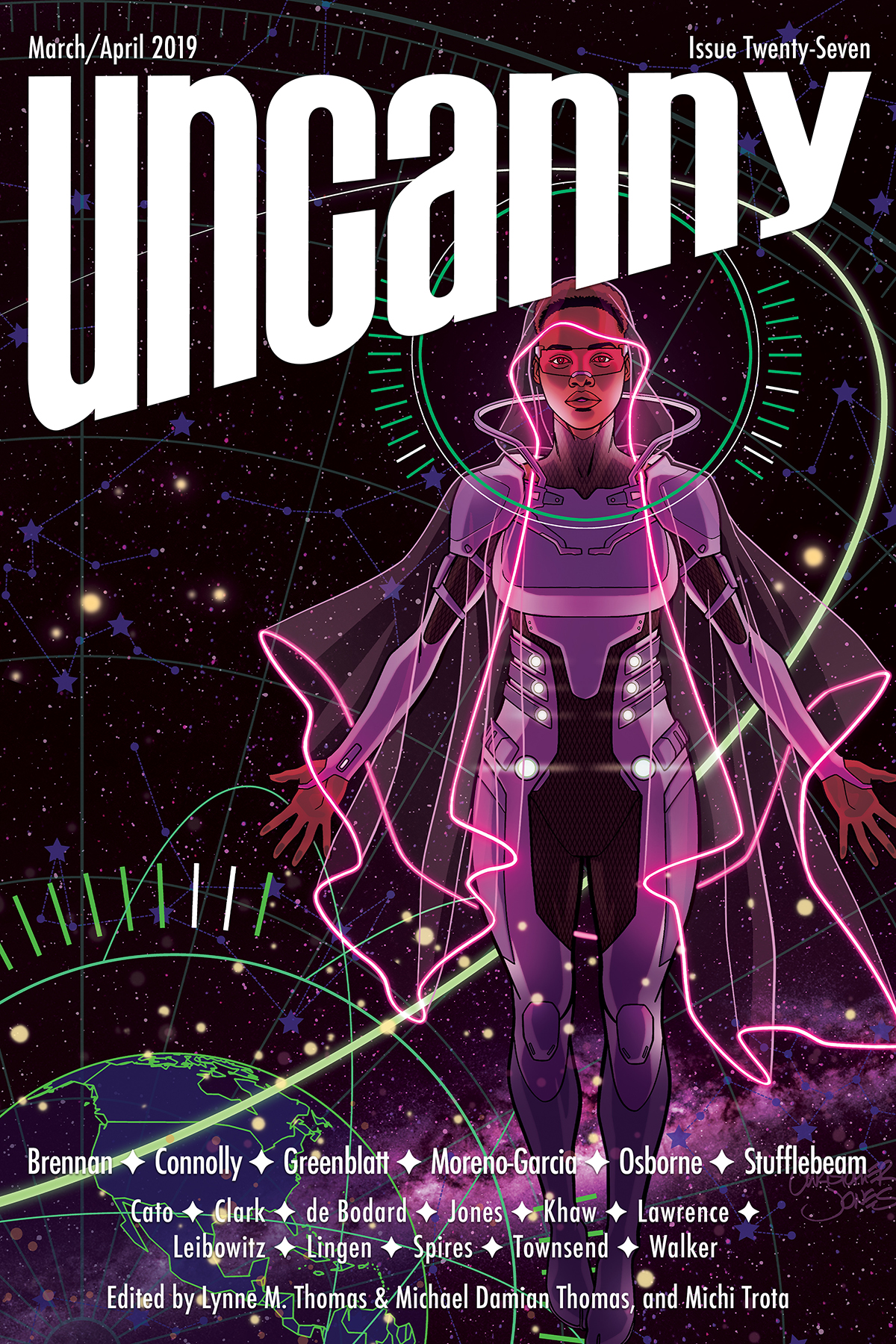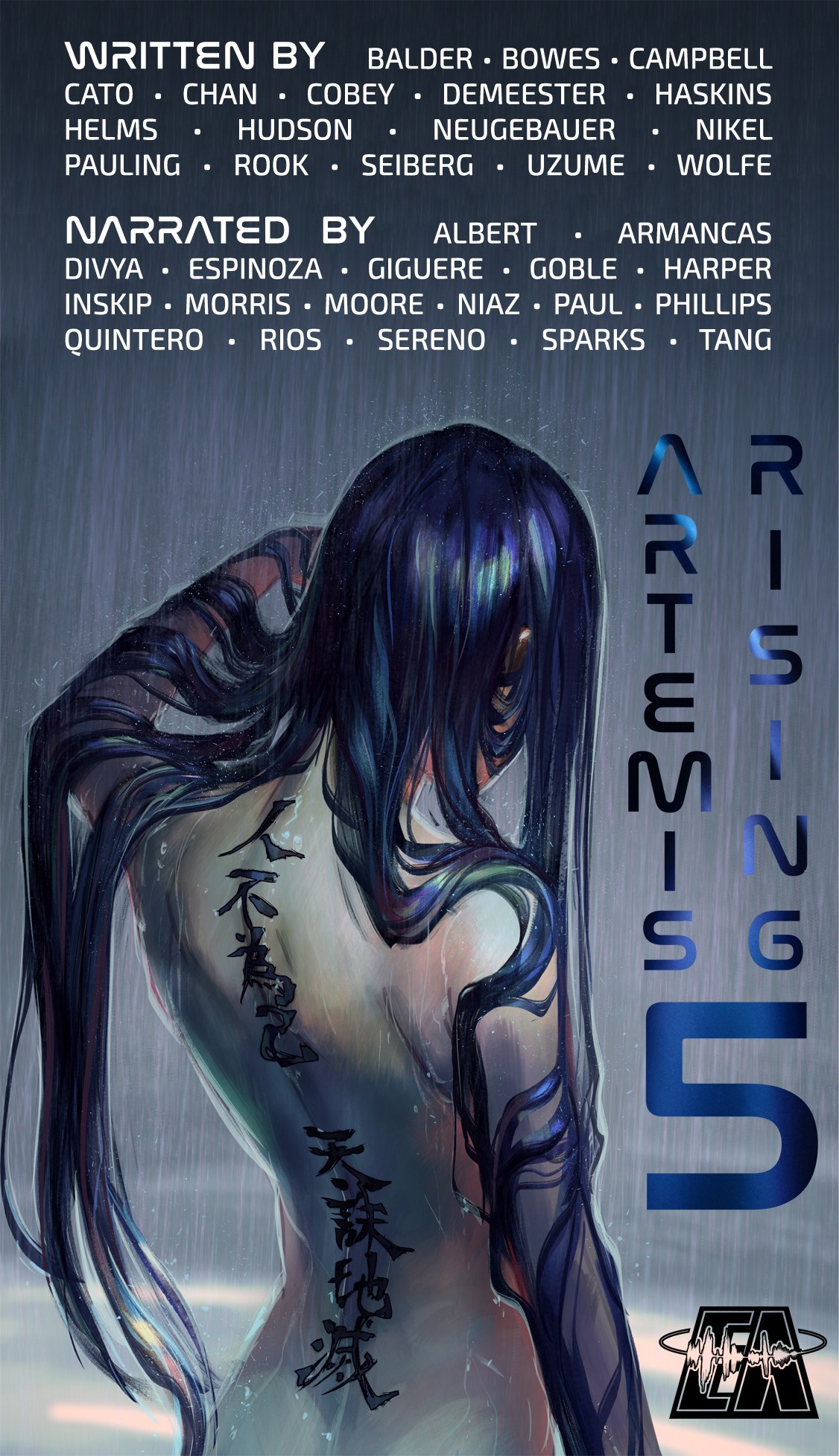This past month, my three favorite stories all happened to be love stories. None of these stories are exactly typical or traditional love stories, which I think is the reason I liked them so much. “Green Glass: A Love Story” by E. Lily Yu feels like a fun romcom about the super-wealthy. It’s also a sharp critique of the 1%. It appears in If This Goes On, a new anthology edited by Cat Rambo. “Every Song Must End” by Bonnie Jo Stufflebeam, which appears in Uncanny Magazine, is a moving, intelligent meditation on love, which centers around two polyamorous couples. “Octonet” by Keyan Bowes appears in Escape Pod and was part of Artemis Rising 5, an annual event put on by the Escape Artists podcast network featuring authors of marginalized genders and sexes. Although “Octonet” does include a lovely romance between two women, it’s mostly a love story about octopuses. If you agree octopuses are awesome, you’ve got to read this. If you haven’t yet realized how awesome octopuses are, you should also check this out.

“Green Glass: A Love Story” by E. Lily Yu
On the surface, this is a romantic comedy about the upper class. It’s exaggerated, comical, and enjoyably over-the-top. Richard Hart Laverton III and Clarissa Odessa Bell are engaged to be married, and they’re both filthy stinking rich. In their quest for an absolutely perfect wedding, Clarissa decides that she simply must serve vanilla ice cream at their reception — honest-to-God actual vanilla ice cream — which in their future is almost impossibly hard to come by. Yet Clarissa is determined to procure it nonetheless. Clarissa and Richard feel like operatic stereotypes of the upper class, and I had a good deal of fun reading their story.
However, beneath the superficial love story of Clarissa and Richard, there’s another story here. Global warming has caused New York to look like Venice, only with toxic tides. Underpaid servants are forced to sleep in janitor closets because they can’t afford rides back home. Following the Four Banks’ War, Switzerland has become radioactive. Global climate change and class divides have made the world dystopian and apocalyptic, at least for everyone who isn’t ultra-wealthy. There’s a subtle yet blistering critique of the 1%, and the story explores how being immensely wealthy may suppress your empathy for others.
What’s most impressive here is that both of the sub-stories work so well together. I enjoyed Richard and Clarissa’s “love” story the way I enjoy a good dumb romcom. It made for fun reading. Simultaneously, I appreciated the quiet, powerful political worldbuilding. It made the story meaningful and substantive. The two stories complement rather than spoil each other, as they easily might have in the hands of a less skilled writer.

“Every Song Must End” by Bonnie Jo Stufflebeam
While Florence and Asher have a solid relationship, they are both looking for something more. They end up forming a relationship with another polyamorous couple, Henry and Clara. Florence falls seriously in love with Henry, but he and Clara soon relocate for work to somewhere very, very far away.
This is a story about love, relationships, and being in love with multiple people, and it compares and contrasts (1) the wild sensations of falling in love, (2) the agonizing pain of love ending, and (3) the patient, tender love of a long-term relationship. It’s a beautiful and moving story that’s filled with gorgeous, evocative descriptions of love and romance, and it’s smart too — I had to pause and reflect several times while I read it. I loved this story because I love stories about nontraditional relationships, and I also appreciated the story for it’s mature, serious representation and exploration of polyamory.
Florence, Henry, and Asher all care about nature, gardening, and music, and those themes are carefully woven throughout the story. The story begins with an approaching storm and ends with the storm’s aftermath, which subtly mirrors Florence’s emotional states and comments on how powerful some relationships can be. Additionally, each scene is headed with a song. I wasn’t familiar with any of the songs, but I appreciated the inventive way to divide scenes. I imagine that if you know the songs, that gives the story another layer of depth.

“Octonet” by Keyan Bowes
This is a story with octopuses at its heart. Rav is the director of the Arraene Octopus Center, and Martina is the research manager. They’re both obsessed with octopuses. When Rav’s sister Sue gets a job fixing the center’s IT system, she’s grossed out by the octopuses at first, but she is slowly won over by them. Sue is especially impressed with how smart, curious, and playful the octopuses are, so she comes up with an idea: what if you gave the octopuses waterproof smartphones? Could you design a networked gadget that the octopuses would want to play with?
With this story, there’s not so much for me to say other than that you should just go read it. If you’re not a fan of these shrewd cephalopods yet, you likely will be after you read this. And if you already love octopuses, then this story will charm you from the get-go. This is a somewhat science-heavy story, but it’s written accessibly. It’s not filled with obscure, unexplained jargon. In fact, it is a decent introduction to these awesome mollusks. I also appreciated the story’s POC, disabled, and queer representation. This is a story where the main characters “just happen to be” POC/disabled/queer. I definitely enjoyed Sue and Martina’s romance, but first and foremost, this is a love story about octopuses. It’s awesome, and I love it.







